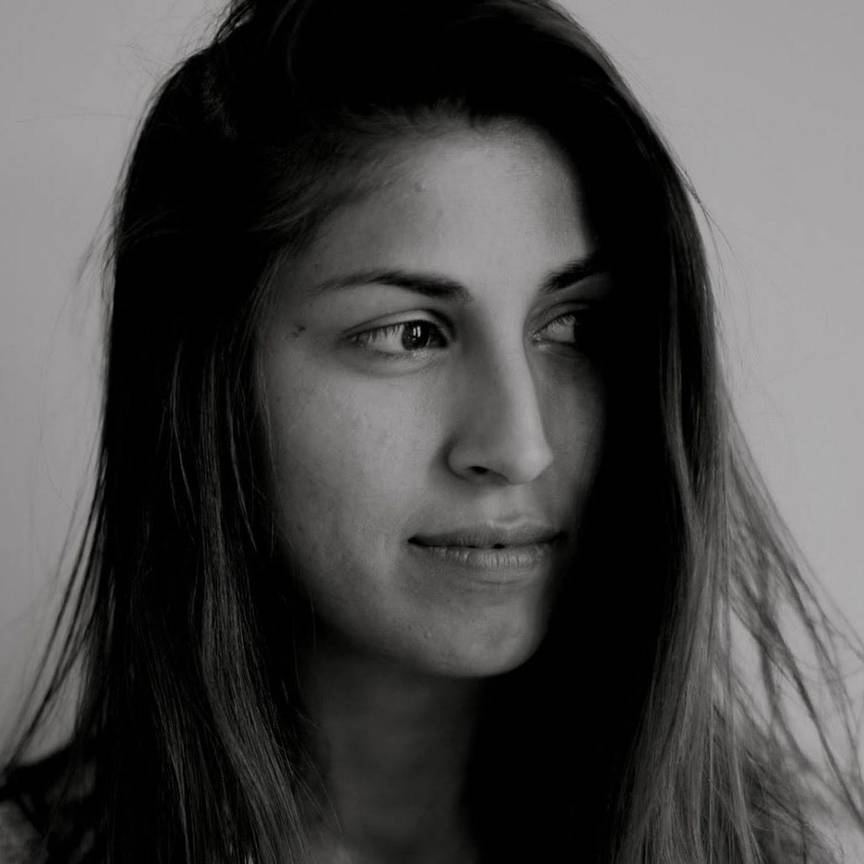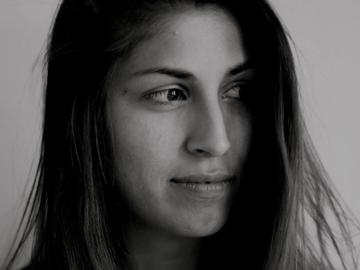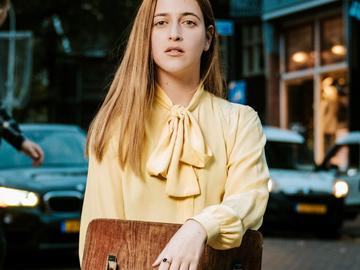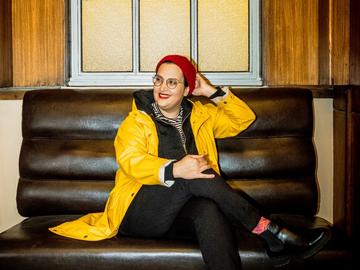For three weeks, a Brussels-based creative will share their view of the world. Maryam Kamal Hedayat is a film-maker, writer and curator. In 2021 she received financial support from the Flanders Audiovisual Fund to create the scenario for her first feature-length film. She is a founding member of the feminist collective of film-makers Wanda. www.maryamkhedayat.com

Maryam Kamal Hedayat.
As I find myself on the Edmond de Grimberghestraat/rue Edmond de Grimberghe on my way home, I receive a WhatsApp message from my father. “Call me.” I know what he wants to ask. Whether I have already found any hotels. I decide that I had better do a bit of research before calling him back. Once inside, I habitually throw my bag on the kitchen table, switch on my computer and google: “Hotels Cairo.”
Ever since I can remember, my father has been talking about Cairo and in particular about wanting to go there. “Will you come with me? I will go with or without you!” The idea of going on holiday with my parents for a week always filled me with dread. It takes patience, and courage, to go back to childhood for a week. Because no matter how old you are, you forever remain their child and they will treat you as such.
In the last few years, I have therefore avoided the travel question. But when my father recently asked me that question again, I was suddenly overwhelmed by a sad thought that I find it hard to put to print: this could be the last chance. So I said yes! Let us go to that ancient land of myths and mummies, where not iron gates but sacred quadrupeds protect the realm and the dead.
Cats were always a big topic of discussion between me and my father. Because he really does not like them. I have never understood that. Especially because he has a big heart for all other four-legged beasts and because his native land is shaped like a cat! It is not cats that make him want to go to Cairo. The journey is actually a pilgrimage. Not to honour the dead pharaohs, but to pay tribute to another dead king, Persia’s Mohammad Reza Pahlavi, whose tomb is in the Al-Rifa’i mosque. Every year, the legend goes according to my father, hundreds of people gather to say goodbye to the monarch who passed away in 1980. Is his grave also protected by the fluffy sphinxes of this city?
How can a generation keep a memory alive if it only witnesses oral traditions?
This journey is no less important for my father than the journey to Lourdes or Compostella is for others. I wonder if there will be appearances and if there will be stalls selling T-shirts, candles and cups decorated with the king’s face. After all, commerce is a fate that sooner or later befalls all holy places.
What will happen when this generation, which still mourns Pahlavi’s death after all these years, no longer is here? Shall we continue the tradition? We who never experienced the cult around the deceased king first hand. How can a generation keep a memory alive if it only witnesses oral traditions?
This place of pilgrimage symbolises a home for my father and the other pilgrims. A place where they feel whole. Home is where your heart is, they say, but for the post-revolutionary and diasporic generation, it is not so obvious. For what if you have let your heart be misguided? What if you got lost along the way?
Perhaps one day a new generation will transform this resting place from a home into a museum. A place that is full of old, lost stories and memories. Perhaps the cats protecting the graves will carry those stories within them and confide them to some lucky passer-by during their wanderings.
Want to read the whole series again? BRUZZ.be/bruxellesvies
Read more about: Expo , Maryam Kamal Hedayat , BruxellesVies


